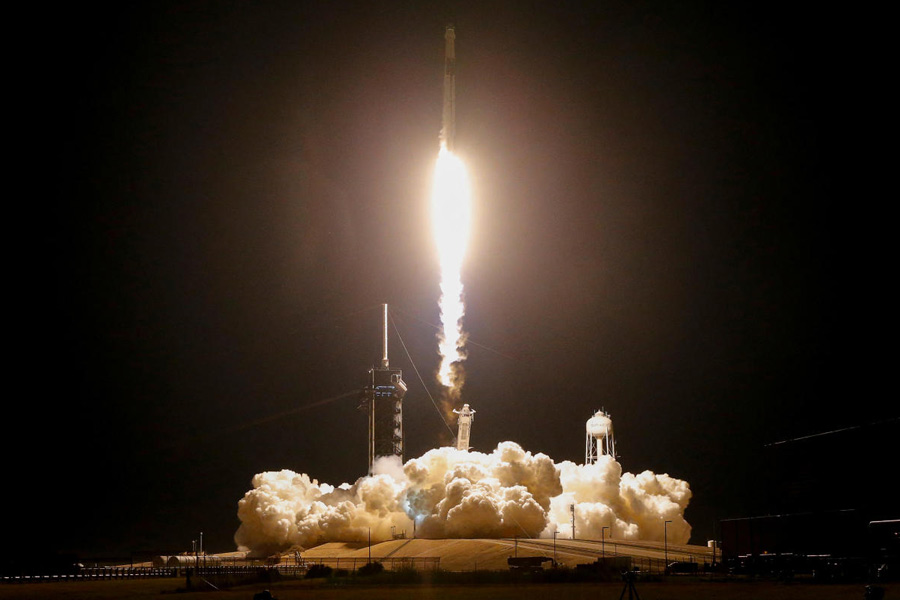The storms had approached. But Ram, a marginal farmer in Bundelkhand, managed to save his crops on this occasion, thanks to the meteorological organisation that continuously monitored the weather conditions with the help of the Indian Space Research Organisation and the newly-built satellites that can track the monsoon, tropical storms, and other global climatic conditions.
This is where the new world is heading, a pre-prepared world. India, too, is set on the quest to become a prominent player in the space sector. An evolving outer space economy enables new methods of application in sectors such as meteorology, energy, telecommunications, the maritime realm, aviation, and transport and can yield economic, political and social benefits. Developments in these sectors are, in turn, important for a nation’s growth and self-sufficiency. The inception of modern technologies like 5G, 3D printing, quantum computing, smarter propulsions, space robotics and nanotechnology has enabled scientists to access outer space and celestial bodies with or without humans. This has been one of the major factors behind the renewed interest in this sector.
The global space exploration market was valued at $630 billion in 2023. It is expected to grow at an annual rate of 16.2% by 2032. This sector is expected to be worth $1.8 trillion by the end of 2035. India, with the sixth-largest space agency, has garnered global attention with its space programmes that are affordable, ambitious, and accessible. From the successful Chandrayaan missions to the moon, Mangalyaan — the Mars Orbiter Mission — Aditya-L1 and Gaganyaan, India’s first manned space mission, the nation has proved that the sky is not the limit. India has successfully launched approximately 177 foreign satellites from different countries between 2018-2022 and a total of 432 satellite launches since its inception. ISRO’s achievements in precision proximity operations in outer space are also extraordinary.
India is only the fourth country to make a successful landing on the moon and the first to explore its southern pole. By nurturing in-house capabilities and modular design philosophies such as the multifunctional PSLV used for carrying out different payload satellite launches, ISRO has reduced its external dependency for space exploration. India’s space programmes, which were earlier focussed on socio-economic development, now aim at meeting goals pertaining to strategic needs and national security. This has led the Indian air force to submit a petition requesting to rename the IAF as the ‘Indian Air and Space Force’. This is part of the 2047 Space Vision, the year that marks the centennial year of India’s independence.
The new space policy of 2023 has opened its doors to increased private sector participation, collaborations with international space agencies and educational institutions, and continuous and increasing interest in research and development. These elements have played a pivotal role in ISRO’s success. However, India also faces a variety of challenges that may impede its space endeavours. Being a third world nation, Indian space programmes operate on a comparatively lower financial allocation that hinders their potential due to issues like the lack of technological advancement, limited budget, restrictive policies, conflict between the public and the private sector and so on.
However, as pointed out by Kalpana Chawla, the first Indian astronaut in space, “The path to success does exist.” India is committed to making its mark in the new space economy. Consequently, Indian space participants are moving towards an action-oriented approach. India aims to increase its share of the global space economy to 10% in the coming decade. This would realise the dream of our first prime minister, Jawaharlal Nehru, and of Vikram Sarabhai, the father of the Indian space programme, that was also the dream of the nation.
Shruti Goyal is a PhD scholar at the Department of International Relations, Jadavpur University










